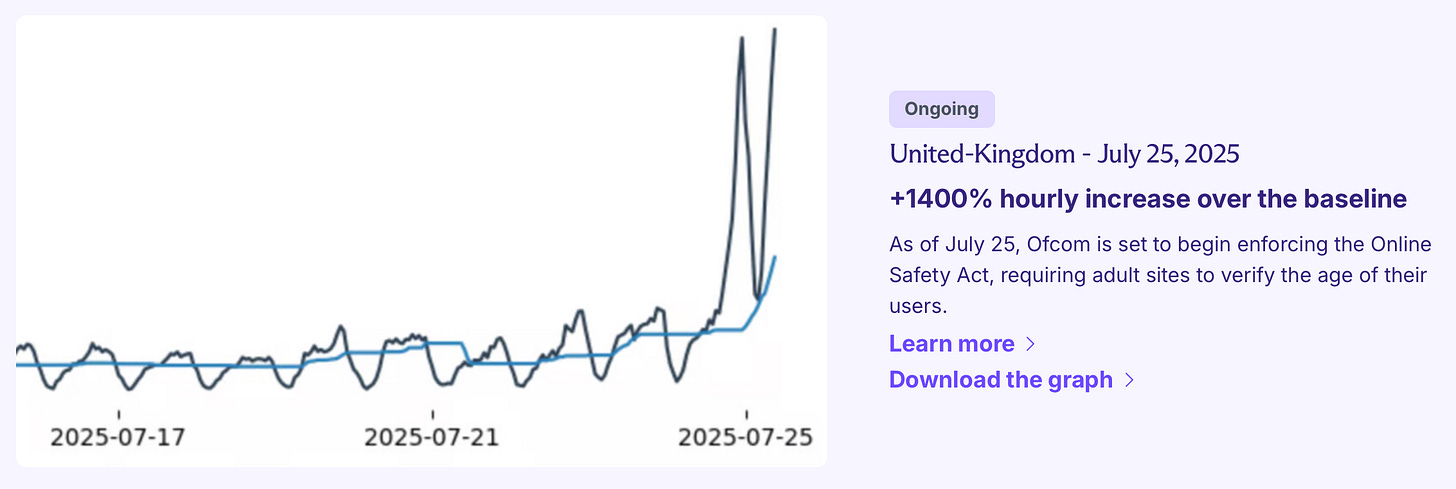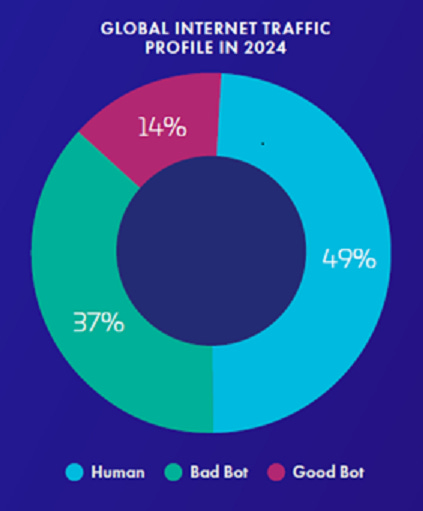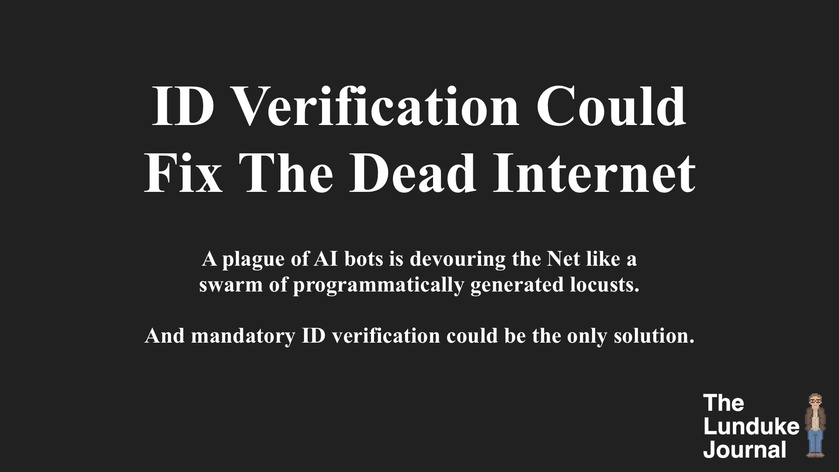I’m going to make an observation that is likely to get me tarred and feathered. But, before you reach for your handy-dandy pitchfork, hear me out.
Age and identity verification requirements for accessing websites is a necessity… it should be expanded to most (if not all) of the Internet.
The reason is simple: Identity verification is the only possible solution to the army of AI driven bots currently infesting the Internet. Want to stop the Dead Internet Theory? This is the only way.
The Problems With Identity Verification
I want to make something very clear: Online age and ID verification has a number of problems. Very, very real problems that every single person is right to be concerned about.
What verification data will be collected and stored (and how)?
What additional security concerns are created because of ID verification?
Will the burden of that verification be too much for some sites to handle?
How will those verification systems be abused by corporations and governments?
And those are just off the top of my head.
Some of the issues are straight forward engineering issues. Some are downright daunting.
Regardless, those 4 bullet points alone are enough to make most people recoil in horror at the mere thought of ID verification becoming mandatory.
But mandatory it has become — at least for a small portion of (adult focused) websites in a number of locales. In several states in the USA, adult websites (and, soon, some social media sites) are now requiring age verification.
And, in the United Kingdom, the Online Safety Act is taking effect. Resulting in a massive spike in VPN usage as people work around age verification on adult-only websites.

There’s a pretty clear takeaway here. Some people really like being anonymous. Especially when doing “naughty” things.
In short: There are real concerns with online ID verification, and many people don’t like it.
Which brings us to The Dead Internet Theory… and how ID verification may be the only solution.
The Plague of The Dead Internet
The Dead Internet Theory is simple:
“The Internet is now predominantly bot traffic, with humans being the minority.”
As of last year, this theory has been confirmed just about every way you can confirm it. The most recent Bad Bot Reportshows that actual humans make up only 49% of global Internet traffic.

Social Media platforms, like X, are filled with AI-driven bot farms. So much so that it is making it increasingly difficult to determine true public sentiment on any given issue — as the bots flood topics and threads in order to push specific narratives.
Want to have a conversation with other humans? Good luck.
And Meta is intentionally filling Facebook timelines with bots. As a business strategy.
Make no mistake, these bots are destroying the value of the Internet. Making it less usable and less worthwhile by the day.
The plague of the Dead Internet is devouring the Net like a swarm of programmatically generated, GPU accelerated locusts.
And those locusts are multiplying much faster than we are.
Stopping this plague — killing off those bots — is, at present, a seemingly insurmountable task. No “bot detection” algorithm will ever be good enough — just ask developers of Massively Multiplayer Online games about how difficult it is to stop bots (even in a well confined and controlled setting).
As long as most websites require no more than a simple email address to create a new account… the bots will continue. The bots will thrive.
The Solution is a Bitter Pill
The solution to the Dead Internet is obvious… but unappetizing.
In order to stop the bots — and reclaim the Internet for humans — we must require verification of humanity in order to use the Internet.
How do we do that?
Obviously simple “captchas” don’t do the trick.
“Type these funny looking letters!”
“Click every box that has a motorcycle!”
Bots can figure those out without breaking a sweat (I, on the other hand, have a hard time with them).
And, like we already discussed, bot detection algorithms simply do not work — at least not for more than a few hours before the bots get improved to work around the algorithm.
The only real solution is identity verification.
Exactly the type of ID & age verification that is happening right now in some US states and the UK. Except that, in order for this to truly work, websites must take it to the extreme.
To ensure that a website isn’t flooded with bots (like what we see on YouTube, X, etc.) that website must require ID verification… for absolutely everyone who uses it. Not simply for a handful of states. For everyone. No exceptions.
Want your views to count? Want to post, comment, or like? You need to get your ID verified first.
I know. Most of us hate that idea. And for good reason. It feels like a horrific step down a dark road into a dystopian future.
But it’s the only viable solution to the Dead Internet.
Which means we are left with two choices for any given website:
Be able to use it anonymously… but most of the content is driven by AI and bots (including other commenters, publishers, etc.)… to the point where any interaction you have is increasingly unlikely to be a real human. And any count of “views”, “likes”, “followers”, “comments”, etc. is utterly meaningless. The bots will dominate all.
ID verification required. With very few bots. Views, likes, etc. will all be real (or at least more real). The people you talk to will be human.
I recognize that most of us will look at both of those options with some level of disgust. But this is the reality we live in. Those are our options if we want this “Internet” thing to continue.
My personal opinion is that sites like X, YouTube, etc. should implement mandatory ID verification.
I don’t like it… but the alternative is that, very soon, those sites will be all but useless as the locusts take over.
















